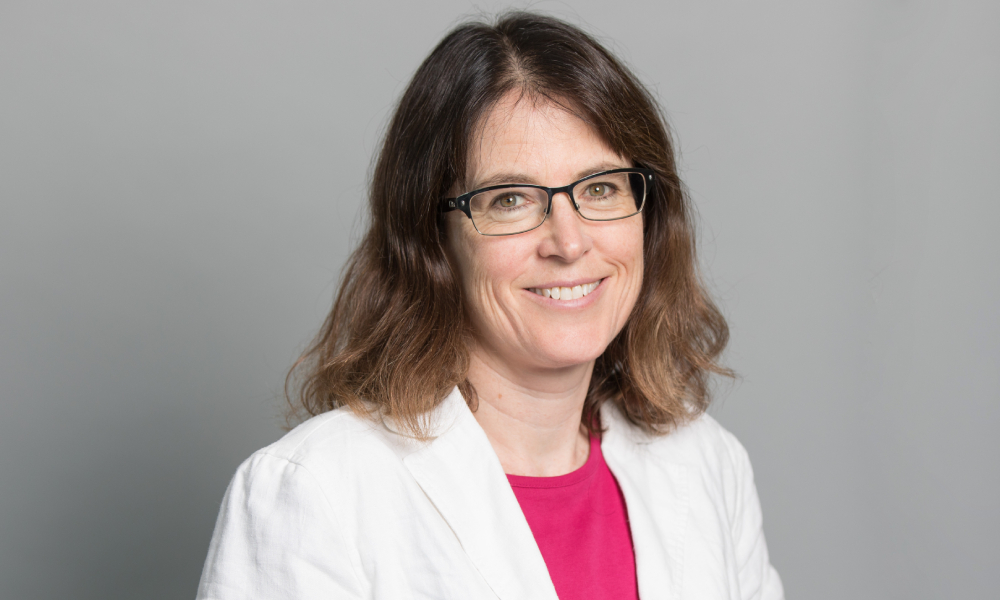
New doctoral degree option to be offered starting in September

After a hiatus of several years, the law school at the University of Calgary has returned to offering a Ph.D. program.
“There’s a lot of good reasons to have a Ph.D program, but one is that having doctoral students in your immediate environment tends to just enrich the life of the institution,” says UCalgary Law’s Lyndsay Campbell, associate dean and graduate program director.
“Being able to offer a Ph.D. is a real milestone,” she says, adding it builds on the recent expansion of the school’s graduate programs and expands the scope of research being done in the faculty.
“Ph.D. students bring in good ideas, new expertise, and they help you to create links with other universities because often Ph.D. students come from somewhere else, and when they are finished, they often go on to other places.”
The school received government approval to offer the program in December and is now reviewing applications for a September 2021 start.
The law school at the University of Calgary offered a “special case” Ph.D. program until about 2013. It was designed for those who excelled in the thesis LLM program and was only offered in the school’s primary area of expertise at the time, national resources, energy and environmental law.
However, with the growth of the law schools’ faculty and areas of expertise, potential students in any area of the law who already have a master’s degree can apply to UCalgary’s Ph.D. law program. (As well, she says the University of Calgary requires all doctoral students to come in with financial support or external funding.)
“There’s a lot of very interesting research being done here now,” Campbell says, “so it is a good time to offer a Ph.D. program here.” She adds that she is currently working on initiatives to offer more graduate programming in cybersecurity law, business law, and human rights — “all areas that reflect the strength of the faculty at our school.”
Campbell says the University of Calgary’s law school graduate program already attracts many international students, many from Nigeria. That’s because the energy sector there plays a huge role in the Nigerian economy and politics, and there is also a strong connection with environmental issues related to fossil fuels.
“With the new Ph.D. program, we’re hoping to attract students from a wide range of expertise and experience,” she says.
Campbell, who received her Ph.D. from the University of California at Berkeley, says the Ph.D. program is designed for students passionate about research in a focused area of law. It is also meant for those who may be interested in an academic or research career.
Practising lawyers often work on getting a masters’ degree in law — whether on a part-time or full-time basis — as the timeline for obtaining the degree works with career commitments. But Campbell notes that pursuing a Ph.D. can take a very long time, so, in general, the people who are attracted to doctoral degrees have a real interest in academia in research, Campbell says.
While having a Ph.D. specifically in law hasn’t always been a prerequisite for an academic career with a university law faculty, Campbell says more law schools are looking for that credential for new hires.
Law schools in Canada that offer Ph.D. programs in law include: Dalhousie University (Ph.D.); Laval University (Ph.D.); University of Montreal (Ph.D.); Queen's University (Ph.D.); University of Ottawa (Ph.D.) University of Toronto (Ph.D.); McGill University (DCL); York University (Ph.D.); Western University (Ph.D.); University of Alberta (Ph.D.); University of Calgary (Ph.D.); University of British Columbia (Ph.D.); and University of Victoria (Ph.D.). Carleton University has a Ph.D. in legal studies, York University has one in Social-Legal Studies, and the Centre for Criminology and Sociological Studies at the University of Toronto has a Ph.D. program as well.
Campbell cautions that potential Ph.D. students, whether in law or not, recognize that pursuing a doctorate “is a long road” that doesn’t automatically lead to a job in academia.
“I guess the important question for the individual is, are you doing it because you love it? Or are you doing it for the job? Because if you’re doing it only for the job, and the job doesn’t come through, you’re going to be an unhappy person. But on the other hand, if you’re doing it for the pure love of it, then it can be a rewarding experience.”